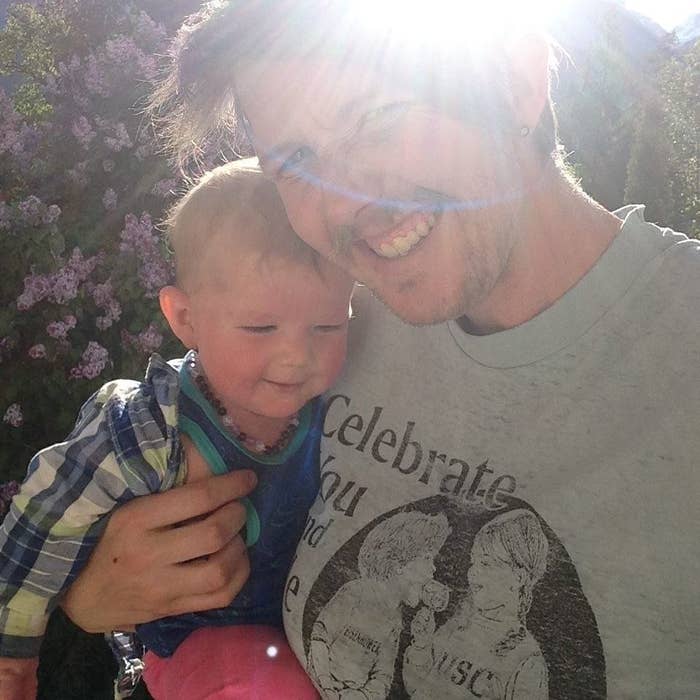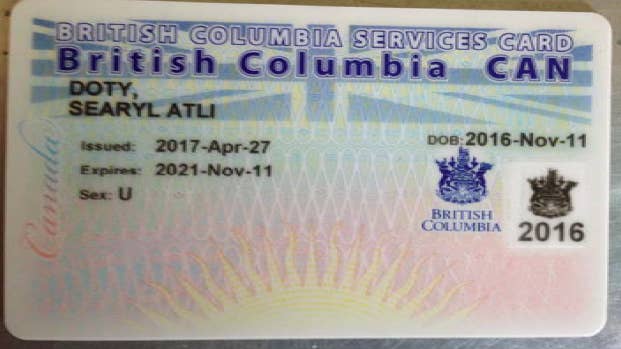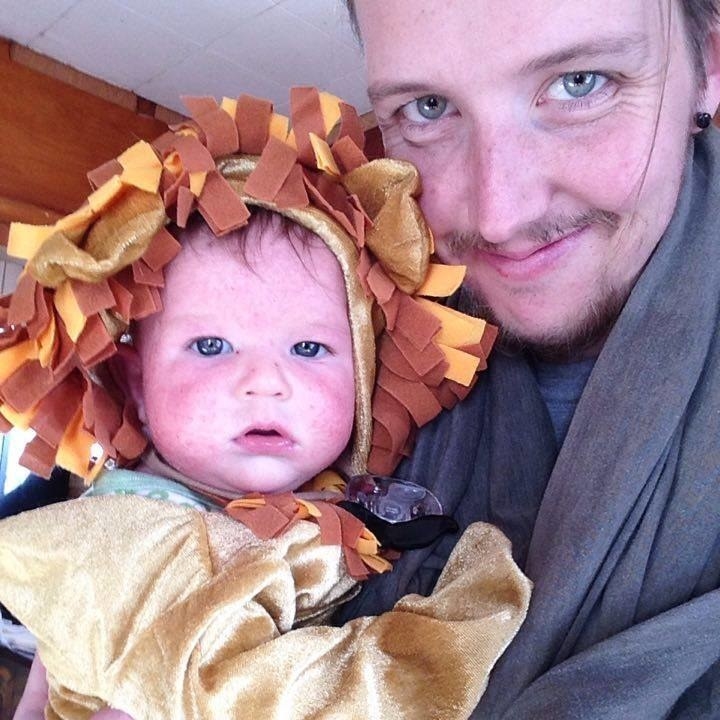
In what could be the first such case in the world, Canadian officials have issued a baby named Searyl Alti a health card without a gender marker.
Kori Doty, a nonbinary transgender person who identifies as neither male nor female, gave birth to Searyl in November and has been battling to keep the eight-month-old's gender off all British Columbia government records ever since.
The health card has a "U" in the space for "sex", which could stand for "unassigned" or "undetermined." However, officials refused to issue a birth certificate without a gender.
"We’re not actually asking to have anyone’s ID changed against their will. We’re just asking to change the structure of how identification, particularly the birth certificate, starts out,” Doty told CKNW News. (Doty did not immediately respond to an interview request from BuzzFeed News.)
British Columbia is believed to be the first public authority to issue an official card without a marked gender. At least two other Canadian provinces, Ontario and Alberta, are now also considering offering a third, nonbinary option on government documents.
Human rights lawyer barbara findlay, who styles her name without capital letters, said the genderless health card arrived in the mail and that it is "a big deal and a major step forward."

"It is recognizing that the state has no business certifying a child's sex at birth," findlay told BuzzFeed News. "It is something that is private and that might change."
The lawyer is working with Doty, a member of the Gender-Free ID Coalition, on fighting the Vital Statistics Agency's decision to refuse a birth certificate for Searyl without a gender, arguing that it violates the baby's rights to "life, liberty and security of the person, to freedom of expression, and to equality under the Charter of Rights and Freedoms."
Doty gave birth to Searyl at a friend's house, bypassing the genital medical inspection that doctors use to assign a child's sex. findlay contends that inspecting the baby at birth does not accurately reflect or determine what sex or gender that newborn will choose to identify with as they mature.

"We would prefer they take 'sex' off these documents entirely," findlay said. "A baby's gender identity develops over time, not when a doctor examines its genitals right after birth."
Doty, who is still going through the arduous experience of changing their birth certificate, told the CBC that doctors chose an "incorrect" gender assignment that "followed me and followed my identification throughout my life."
They, along with eight other people and the British Columbia Trans Alliance, have brought a case before British Columbia's Human Rights Tribunal demanding the right to change their birth certificates, arguing that the document encapsulates personal information that cannot change.
As a parent, Doty wants to spare their child that kind of stress and frustration.
"I'm raising Searyl in such a way that until they have the sense of self and command of vocabulary to tell me who they are, I'm recognizing them as a baby and trying to give them all the love and support to be the most whole person that they can be outside of the restrictions that come with the boy box and the girl box," Doty told the CBC.
